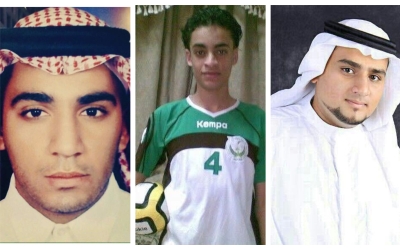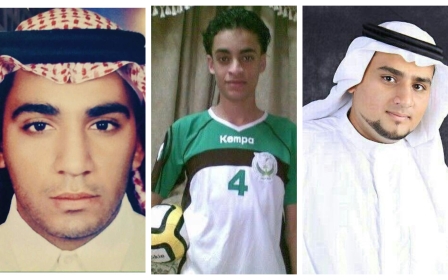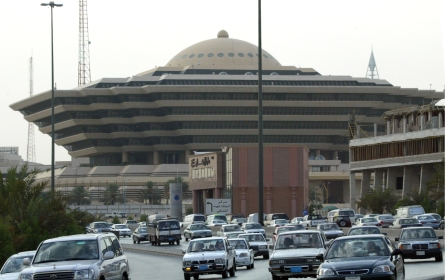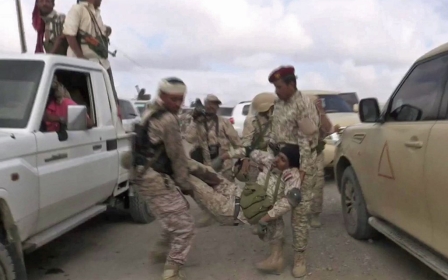Executed Saudi student had 'bright future' ahead of him in Michigan
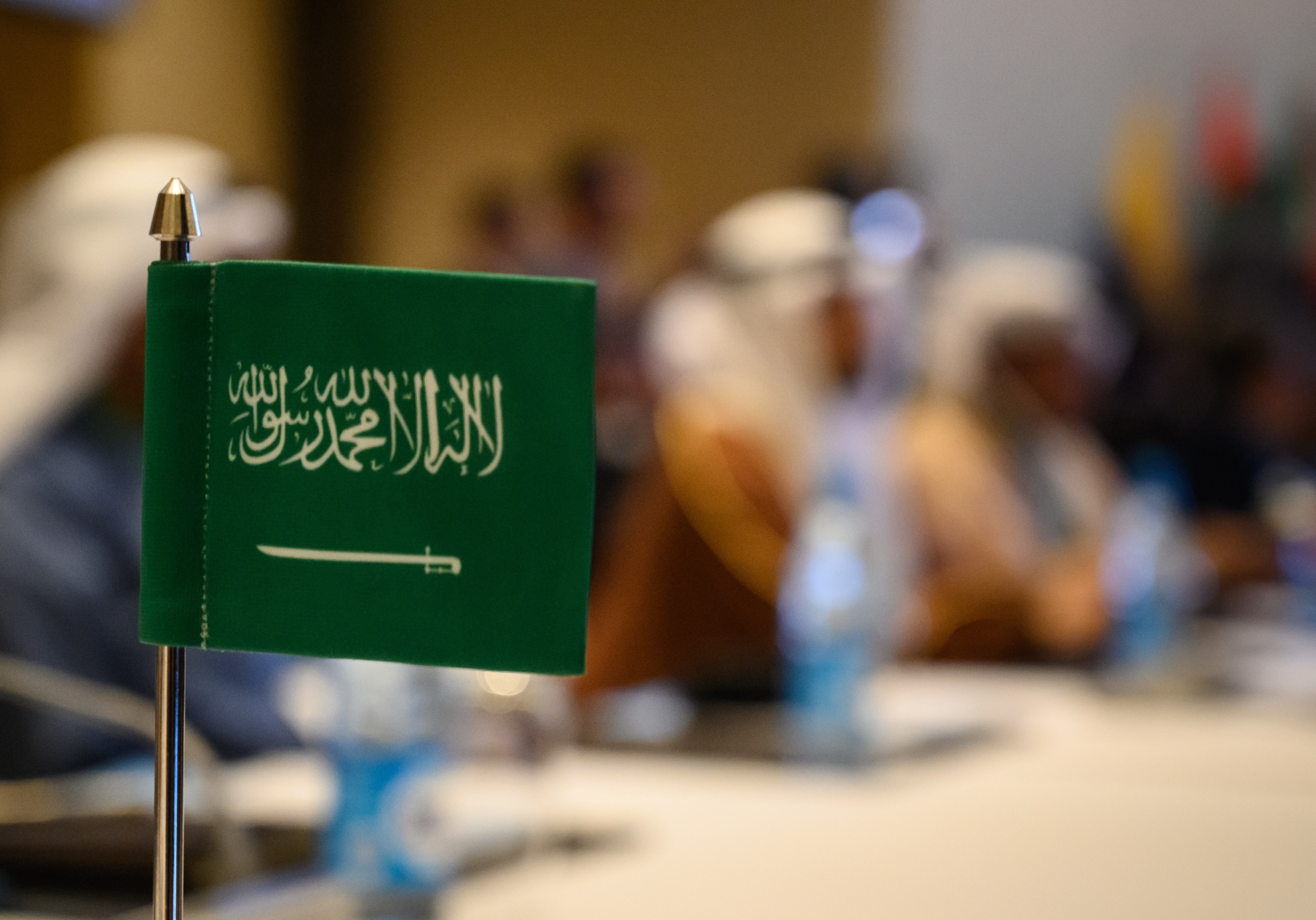
Mutjaba al-Sweikat was only 17 when Saudi Arabian authorities arrested him for participating in an anti-government protest. Instead of attending university in the Midwestern US state of Michigan, he spent his late teens and early 20s in jail before being executed by beheading.
Sweikat had been accepted into Western Michigan University (WMU), but Saudi authorities arrested him in 2013 at the airport before he boarded the plane to start his university education to study finance.
Michigan officials and activists, who had been pushing to stop the execution, have condemned the killing, calling on the US government to hold Saudi Arabia accountable.
"We learned the news yesterday along with all others. It's certainly distressing and tragic news. It's hard to fathom," Paula M Davis, a spokeswoman for WMU, told Middle East Eye.
Sweikat was killed along with 36 others - mostly activists from the country's Shia minority - after being convicted on "terror" charges stemming from anti-government demonstrations.
New MEE newsletter: Jerusalem Dispatch
Sign up to get the latest insights and analysis on Israel-Palestine, alongside Turkey Unpacked and other MEE newsletters
According to the London-based human rights group Reprieve, Sweikat endured torture at the hands of his captors before his execution.
"He was severely beaten all over his body, including the soles of his feet, and convicted on the basis of a confession extracted through torture," Reprieve said in a statement.
'Mutjaba had a bright future ahead of him and Michigan was prepared to welcome him as a student. Instead, he faced inhumane torture and pain ultimately leading to his execution'
-Debbie Dingell, congresswoman
The executions mark the latest round of increasing human rights abuses by Saudi Arabia under the leadership of powerful Crown Prince Mohammed bin Salman.
One of the 37 victims of the executions had his beheaded corpse put on public display on Tuesday, according to Human Rights Watch (HRW).
"Saudi authorities will inevitably characterise those executed as terrorists and dangerous criminals, but the reality is that Saudi courts are largely devoid of any due process and many of those executed were condemned based solely on confessions they credibly say were coerced," Michael Page, deputy Middle East director at HRW, said in a statement.
Still, despite the growing scrutiny of Saudi Arabia's rights violations, US President Donald Trump has rarely criticised Riyadh, even as outrage grows in the US over the murder of journalist Jamal Khashoggi and the detention and execution of dozens of activists.
'Surprised and stunned'
Ali Tinai, the head of WMU College Democrats, a student group on campus, said Trump has failed Sweikat and other victims of the Saudi government.
"By being silent and not taking action to prevent incidents like this from happening, this administration is showing that it does not care about human rights," Tinai told MEE.
Both Democrats and Republicans in Michigan expressed outrage over the execution.
Democratic Michigan Congresswoman Debbie Dingell also condemned the "disturbing" killing of Sweikat.
"Mutjaba had a bright future ahead of him and Michigan was prepared to welcome him as a student. Instead, he faced inhumane torture and pain ultimately leading to his execution," Dingell said in a statement, vowing to promote free speech around the world.
'I was most surprised and stunned to hear the news about Mujtaba’a al-Sweikat, a young man that could have had a promising future ahead of him'
-Fred Upton, congressman
Dingell serves a district with a large Arab population on the east side of the state.
Fred Upton, the Republican congressman who represents the city of Kalamazoo where the university is located, revealed that he had addressed Sweikat's case with Saudi officials.
"I was most surprised and stunned to hear the news about Mujtaba’a al-Sweikat, a young man that could have had a promising future ahead of him," Upton told MEE in an emailed statement.
"Rep. Debbie Dingell and I met early on with Saudi officials to voice our humanitarian concerns with his arrest. He was only 17 when he was arrested, and to suffer such a barbaric act is tragic. Our prayers are with his family and friends."
Campaign against execution
Local lawmakers and rights advocates also decried the execution.
Abdullah Hammoud, a Michigan state representative, urged Congress to impose sanctions against the Saudi government, saying that the increased pressure on Riyadh that occurred after Khashoggi's murder must be maintained to hold Saudi rulers accountable.
Hammoud called the torture and killing of Sweikat "egregious".
"He was a student who had a whole future ahead of him, who was coming here to excel, to further a life for himself and for a future family that he could have started," Hammoud told MEE. "It's saddening to hear."
For his part, Jon Hoadley, a Kalamazoo-based Democratic State representative, also said he was "saddened and disgusted" by the news of the execution.
"We had previously advocated for justice for Mujtaba al-Sweikat," Hoadley wrote in a Facebook post.
"He was a young man seeking an education at Western Michigan University. However, since he protested his government, he was detained, isolated, subjected to a sham trial, and ultimately - if the reports are true - beheaded."
Hoadley and other officials led a campaign to lobby Trump to intervene and halt the execution after news of the death sentence against him emerged two years ago.
"I request that you contact Saudi Crown Prince Mohammed bin Salman as soon as possible and urge him to stop the executions and commute the death sentences," Hoadley wrote in a letter to Trump in July 2017.
"Any government that stands idly by while a young man loses his life in such a barbaric way, for no real crime, is complicit in his death."
Middle East Eye delivers independent and unrivalled coverage and analysis of the Middle East, North Africa and beyond. To learn more about republishing this content and the associated fees, please fill out this form. More about MEE can be found here.


